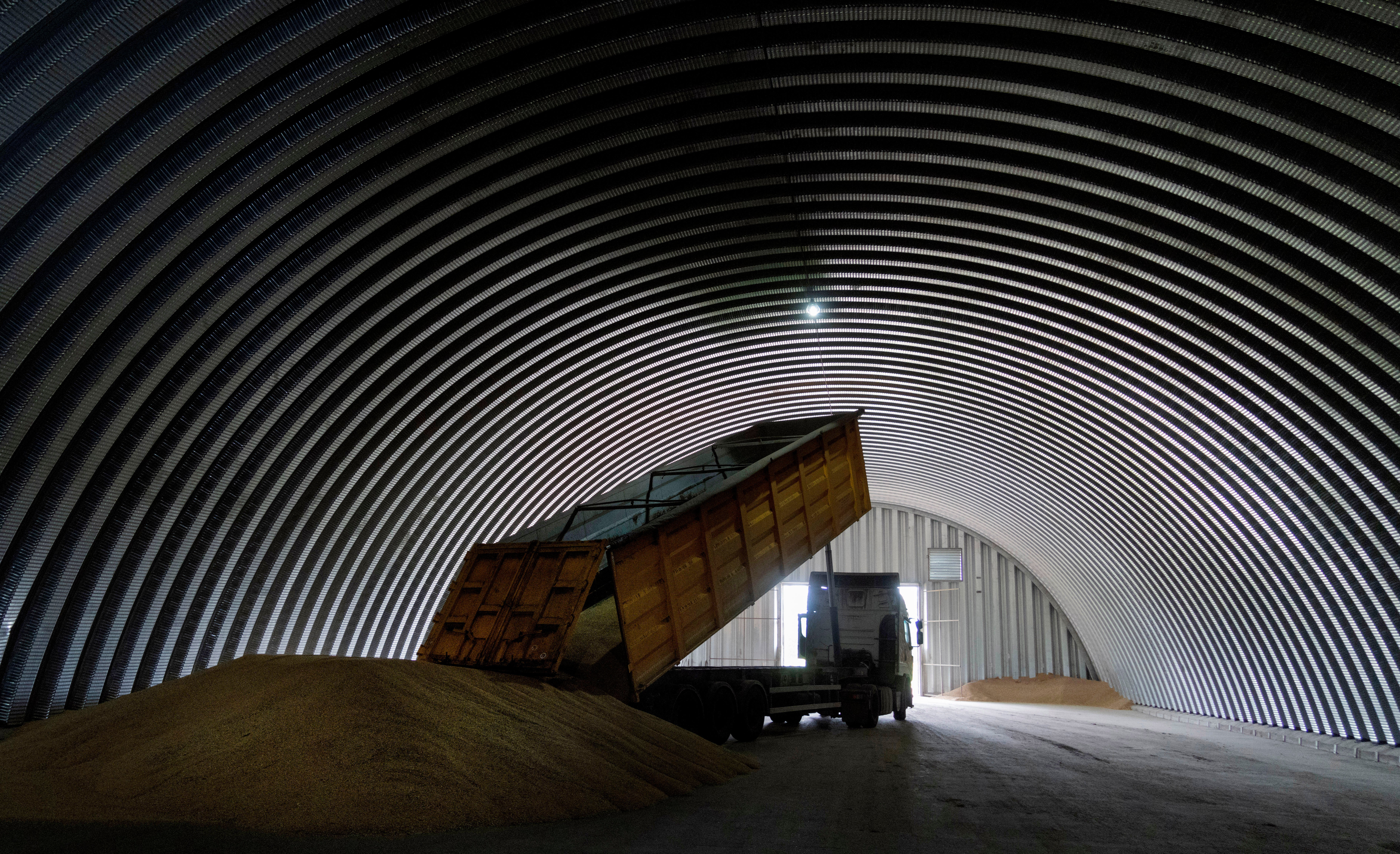Deal on Ukrainian grain exports during war to be extended
A wartime agreement that allowed grain shipments from Ukraine to resume and helped temper global food prices will be extended by 120 days, the United Nations and other parties to the deal say

Your support helps us to tell the story
From reproductive rights to climate change to Big Tech, The Independent is on the ground when the story is developing. Whether it's investigating the financials of Elon Musk's pro-Trump PAC or producing our latest documentary, 'The A Word', which shines a light on the American women fighting for reproductive rights, we know how important it is to parse out the facts from the messaging.
At such a critical moment in US history, we need reporters on the ground. Your donation allows us to keep sending journalists to speak to both sides of the story.
The Independent is trusted by Americans across the entire political spectrum. And unlike many other quality news outlets, we choose not to lock Americans out of our reporting and analysis with paywalls. We believe quality journalism should be available to everyone, paid for by those who can afford it.
Your support makes all the difference.A wartime agreement that allowed grain shipments from Ukraine to resume and helped temper global food prices will be extended by 120 days, the United Nations and other parties to the deal said Thursday.
The initiative established a safe shipping corridor in the Black Sea and inspection procedures to address Russian and Ukrainian concerns that cargo vessels traveling off Ukraine's southern coast might carry weapons or launch attacks.
The deal that Ukraine and Russia signed in separate agreements with the U.N. and Turkey on July 22 was due to expire on Saturday. Russia confirmed the extension but said it expected progress on removing obstacles to the export of Russian food and fertilizers.
The news the deal would continue came amid a new barrage of Russian airstrikes that smashed into energy infrastructure, apartment buildings and an industrial site in Ukraine. At least four people were killed and 11 others wounded in drone and missile strikes around the country, authorities said.
Ukrainian President Volodymyr Zelenskyy called the extension a “key decision in the global fight against the food crisis.” U.N. Secretary-General Antonio Guterres and Turkish President Recep Tayyip Erdogan welcomed the renewal of the four-month-old deal.
“I was deeply moved to know that in Istanbul, Turkey, Ukraine, Russia and the U.N. had come to an agreement for the rollover of the Black Sea Grain Initiative, allowing for the free exports of Ukrainian grains,” Guterres said in a video statement.
Russia had voiced dissatisfaction with the implementation of the part of the agreement aimed at facilitating exports of Russian grain and fertilizer, hinting that it might not agree to an extension until its concerns were addressed.
Although Western sanctions against Russia for its invasion of Ukraine did not target such exports, many shipping and insurance companies were reluctant to deal with Moscow. Guterres said the U.N. was “fully committed” to removing hurdles to shipping food and fertilizer from Russia.
The Russian Foreign Ministry said Moscow had allowed the extension to take effect "without any changes in terms and scope” of its agreement. The ministry said Russia noted the “intensification” of U.N. efforts to hasten Russian exports.
“All these issues must be resolved within 120 days for which the ‘package deal’ is extended,” the ministry said.
Moscow briefly suspended its participation in the deal in late October, citing risks to its ships following what it alleged was a Ukrainian drone attack on Russia's Black Sea Fleet. Ukraine did not claim responsibility for the attack.
Ukraine and Russia are major global exporters of wheat, barley, sunflower oil and other food to developing countries. A loss of those supplies following Russia’s Feb. 24 invasion of Ukraine had pushed up global food prices and fueled concerns of a hunger crisis in poorer countries.
Global food prices declined about 15% from their March peak after the grain initiative was adopted in July.
“With the delivery of more than 11 million tons of grains and foodstuffs to those in need via approximately 500 ships over the past four months, the significance and benefits of this agreement for the food supply and security of the world have become evident,” Turkey's Erdogan said.
___
Follow AP's coverage of the war in Ukraine: https://apnews.com/hub/russia-ukraine